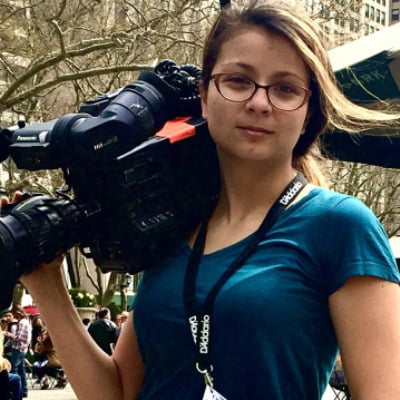David G. Hall is an international radio programming consultant who achieved fame in 1991 when he reinvented news and talk radio at KFI, Los Angeles.
I recently shared his insights into coaching talk radio talents.
In part two of our conversation, DGH talks about coaching producers and talent of shows
with multiple hosts.
DW: How do you coach producers? What do you need them to do for the talent?
DGH: Well, mostly with the work that I do in spoken word I think a producer is strongest when they help pull out your point or the best part of a topic. So you say, ‘Oh, we got to talk about this bridge collapse in Baltimore, man. I don’t really know what I want to say.’ And then the producer says, ‘Well, what pisses you off about it?’ Or, ‘What’s the thing that nobody gets?’ And you go, ‘Well, nobody understands X.’ Then the producer says, ‘That’s what you start with right there. There’s your way in and then you can explain it.’
So, (the producer’s job is) to kind of pull out from you what you really want to say, because sometimes it’s hard to find that on your own when you’re just doing everything in your head. So, your producer says, ‘Ok, that’s where you want to start right there,’ and then does whatever research is necessary to help you back that up or to come up with examples or come up with audio.
DW: What about two or three people shows? How do you get them on the same page consistently, learning to think like each other, and not make those hard left turns in conversations?
DGH: I have to deal with that a lot with shows where there’s more than one person. It’s important to help people in multiple-person shows understand you don’t have to say too much to get a lot of attention. A lot of people in that second chair want to keep talking because they feel like if they don’t talk, they’re going to be invisible. But it doesn’t work that way.
So I spent a lot of my time coaching people I would call the second chair people, but they’re really co-hosts, on how to be engaging in a certain way and how to not make a hard left where then all of a sudden you have the listeners, and worse, your co-host, going ‘What the hell? How do I respond to that?’ That comes up a lot. And in music morning shows, I try to keep them from talking over each other and stuff like that.
But the hard part comes with the payoff because when they’re doing a bit or they’re doing a benchmark, I want everybody laughing and smiling as the song starts, and as soon as everybody’s laughing and smiling, get the hell out and start the song. What happens is, especially if there’s more than two people, they one-up each other, right?
So somebody has the perfect out where they should hit the song and then the other person goes ‘Oh, no, no, no,’ and then they say something that causes the first person to try to beat that and before you know it you’ve got four punchlines, each one worse than the one before. Start the song, get the hell out, and prepare for your next bit.
DW: This is great stuff. What would you add or how would you summarize all of this for radio talents and the people who coach them?
DGH: I have three things. The first is you have to be consistent and regular. So if you’re gonna tell me to do this differently, you better show up in a week to remind me because all of us on the radio get stuck in habits and in a comfort zone, right?
So I’ll do what you say today and maybe tomorrow, and by the next day, maybe half. And then by the day after that, by Friday, I’m not doing it at all. So you better show up on Friday to say, ‘Hey, I heard you on Monday, man, you sounded great!’ Then help me break bad habits and set new ones, because we all are creatures of habit when we’re on the radio.
Second thing I would say is: be as specific as possible. It was never helpful to me when someone would say ‘Great show.’ Yeah. Ok, thanks, but that doesn’t mean anything to me.
But, when the market manager or PD says, ‘Yesterday when you interviewed that guy and you asked him this question, oh my god that was fantastic!’ As a talent with ego, I’m assuming he heard the entire show, even though he’s commenting on one thing. But that one thing is much more valuable than just ‘Hey, great show’. And then the third thing I would say is Joe Crummey. I don’t know if you know the name Joe Crummey.
DW: Yes, we’ve never met but we’ve become online friends. I love his work.
DGH: When I was first PD (at KFI), Joe Crummey said something key that I think about all the time when I’m working with talent and from when I was on the radio. He said, ‘When you’re on the radio, you walk a plank every single day and you just hope to God that you don’t fall off.
‘Because, unlike television, unlike Jon Stewart or Jimmy Kimmel or Stephen Colbert, we don’t have a writer’s room of 22 people sitting behind us thinking of every brilliant word we’re gonna say. You have to mostly do it yourself and mostly do it right off the top of your head. And if you’re on the radio three hours a day, five days a week, you are coming up with 15 hours of original content every week, walking a plank, not making a fool of yourself, not humiliating yourself, and not losing your train of thought.
It’s tough to create that much original content and to keep your train of thought and not humiliate yourself.’
DW: And to do it with no real-time feedback from the audience.
DGH: Right, exactly. You have no idea how it’s landing. That was one of the most valuable things anybody has ever said to me in this business. And to this day, I think about that. When I work with talk show hosts who are on the hook for hours without anything to hide behind, no songs, maybe a newscast at the top of the hour, but not much else I always think, ‘Man, you are walking a plank and it’s all original content.’
I really respect that, I really respect the talent necessary to be able to do what we do without humiliating ourselves, without getting sued, without getting fired, and with our toes dangling off the end of that plank for hours a day, every single day.



















